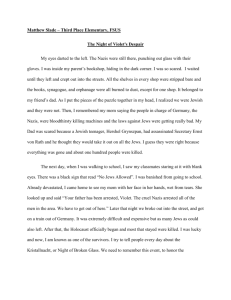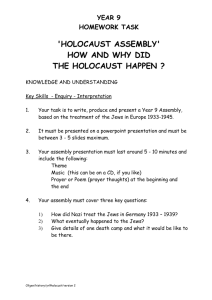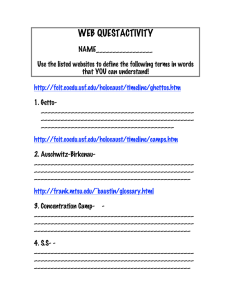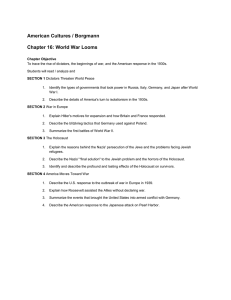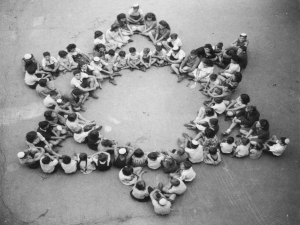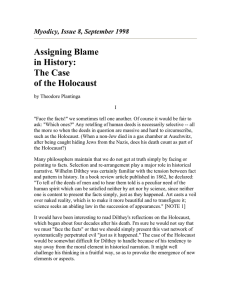Structured encampments were a vital part of the Bielski campaign... defend against the Germans. Many partisans were simply armed...
advertisement
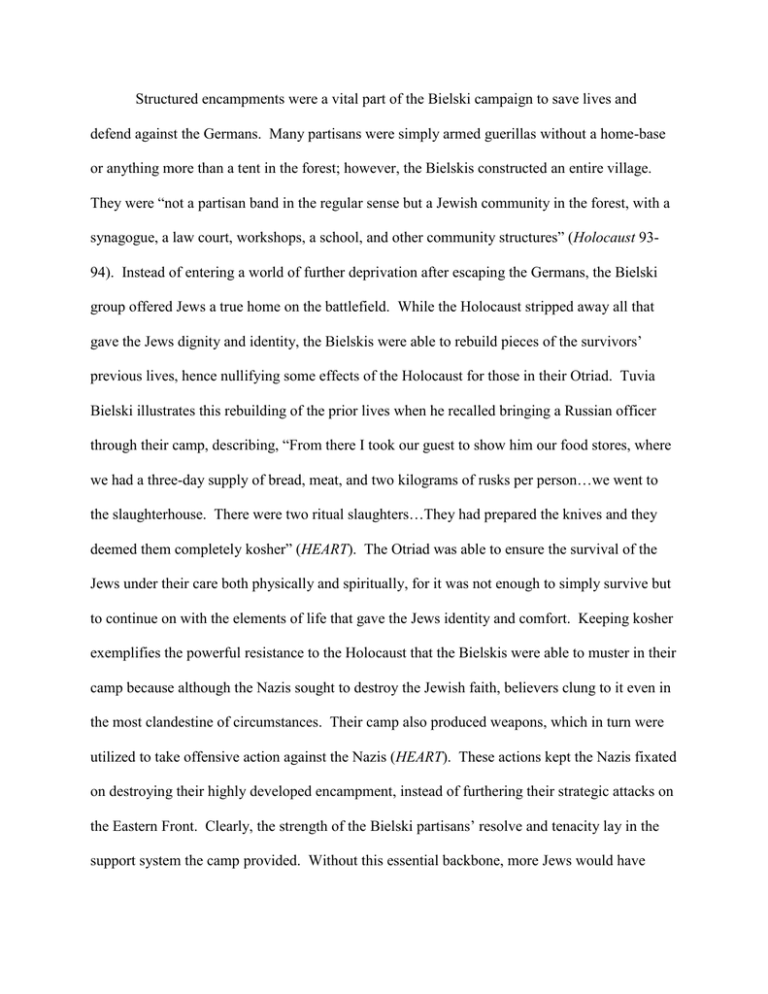
Structured encampments were a vital part of the Bielski campaign to save lives and defend against the Germans. Many partisans were simply armed guerillas without a home-base or anything more than a tent in the forest; however, the Bielskis constructed an entire village. They were “not a partisan band in the regular sense but a Jewish community in the forest, with a synagogue, a law court, workshops, a school, and other community structures” (Holocaust 9394). Instead of entering a world of further deprivation after escaping the Germans, the Bielski group offered Jews a true home on the battlefield. While the Holocaust stripped away all that gave the Jews dignity and identity, the Bielskis were able to rebuild pieces of the survivors’ previous lives, hence nullifying some effects of the Holocaust for those in their Otriad. Tuvia Bielski illustrates this rebuilding of the prior lives when he recalled bringing a Russian officer through their camp, describing, “From there I took our guest to show him our food stores, where we had a three-day supply of bread, meat, and two kilograms of rusks per person…we went to the slaughterhouse. There were two ritual slaughters…They had prepared the knives and they deemed them completely kosher” (HEART). The Otriad was able to ensure the survival of the Jews under their care both physically and spiritually, for it was not enough to simply survive but to continue on with the elements of life that gave the Jews identity and comfort. Keeping kosher exemplifies the powerful resistance to the Holocaust that the Bielskis were able to muster in their camp because although the Nazis sought to destroy the Jewish faith, believers clung to it even in the most clandestine of circumstances. Their camp also produced weapons, which in turn were utilized to take offensive action against the Nazis (HEART). These actions kept the Nazis fixated on destroying their highly developed encampment, instead of furthering their strategic attacks on the Eastern Front. Clearly, the strength of the Bielski partisans’ resolve and tenacity lay in the support system the camp provided. Without this essential backbone, more Jews would have perished and the Germans would have had a far easier time marching deeper into Eastern Europe and Russia.
